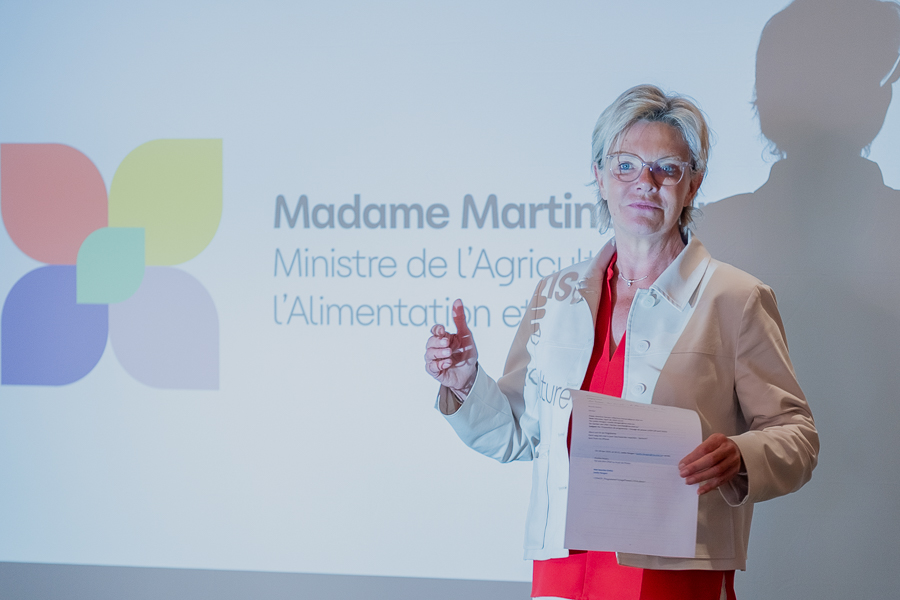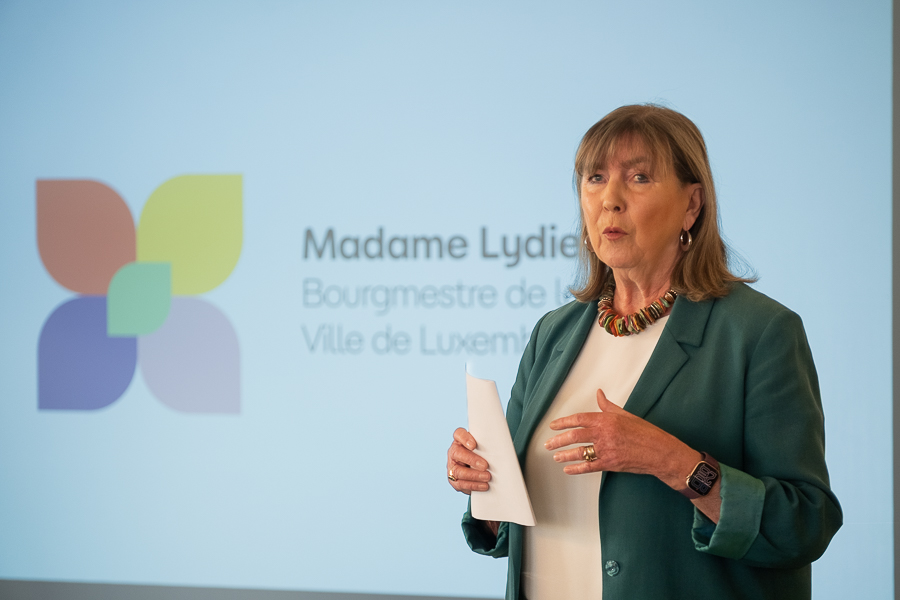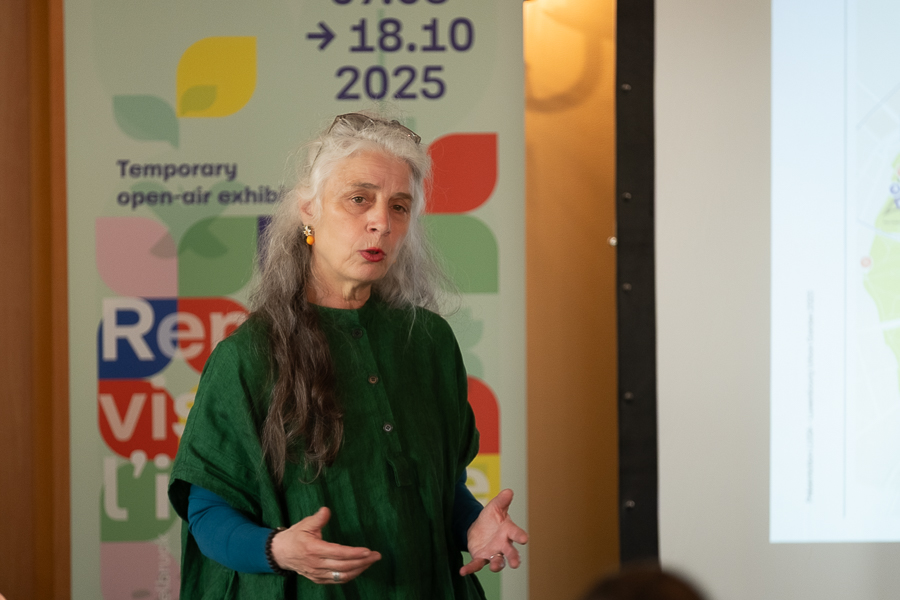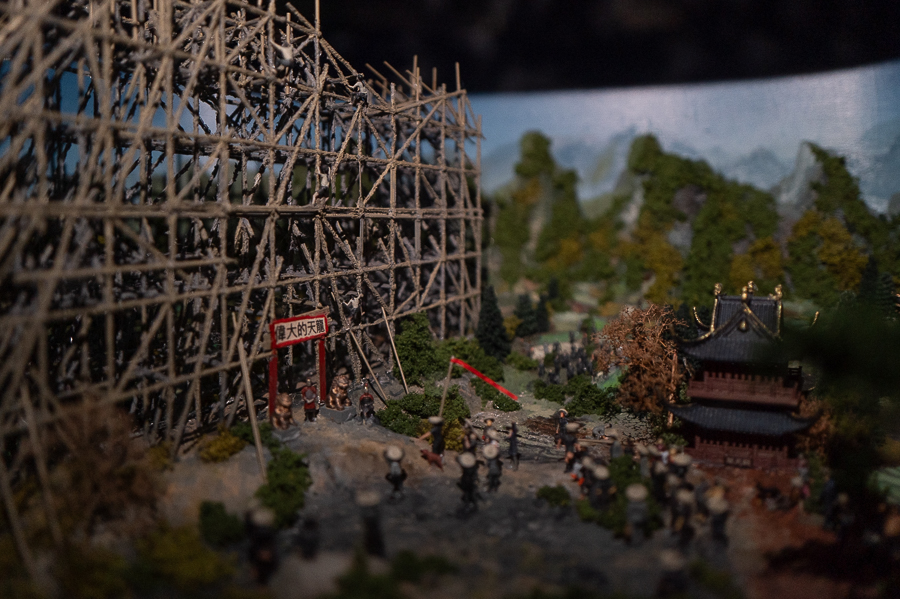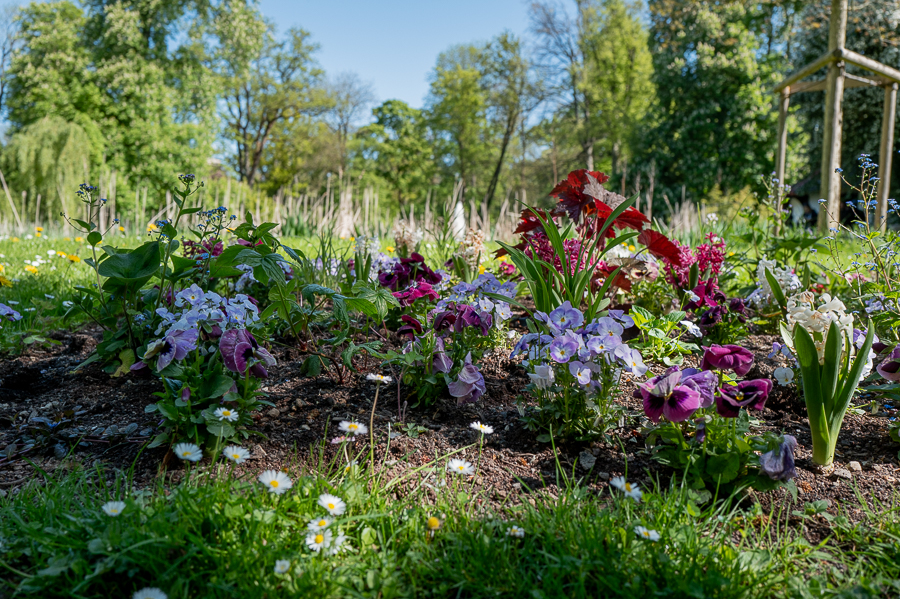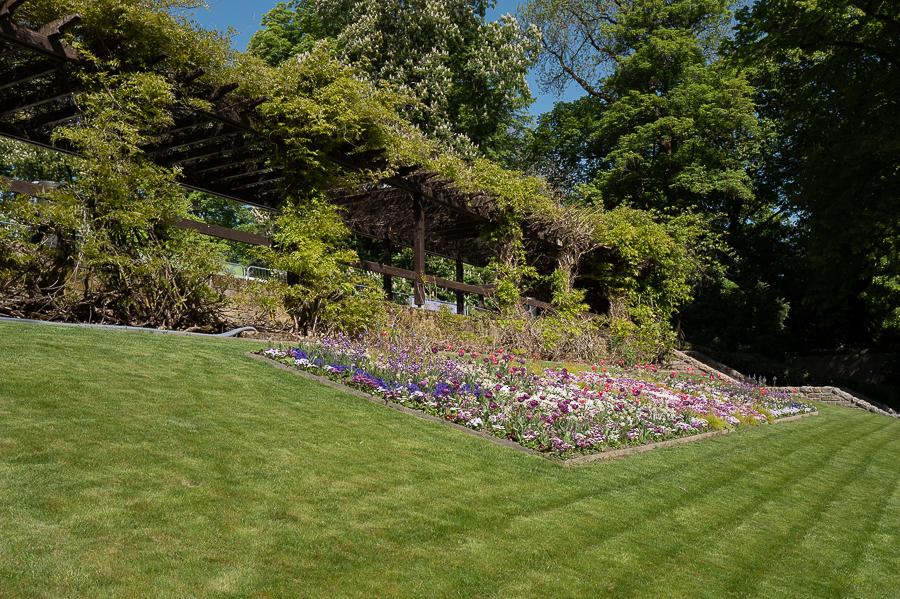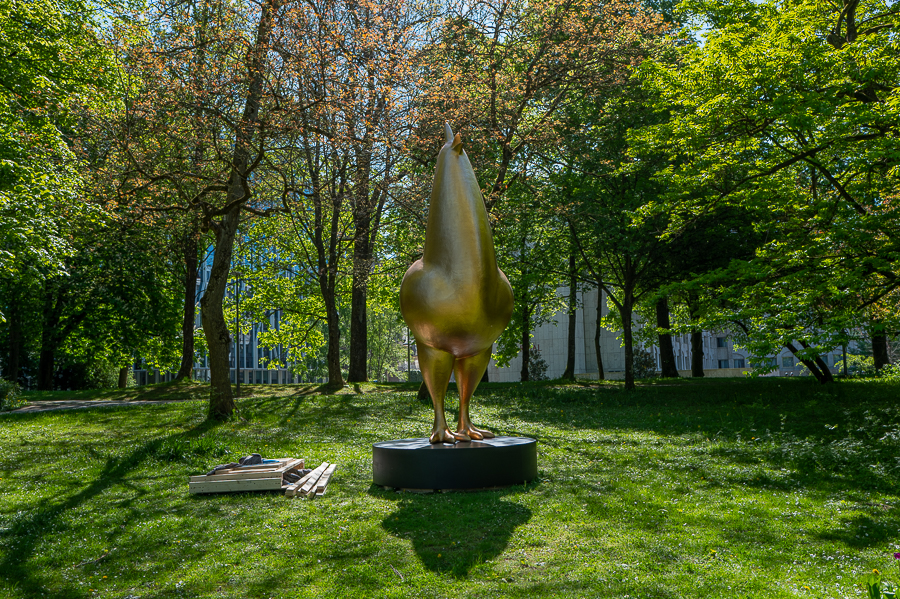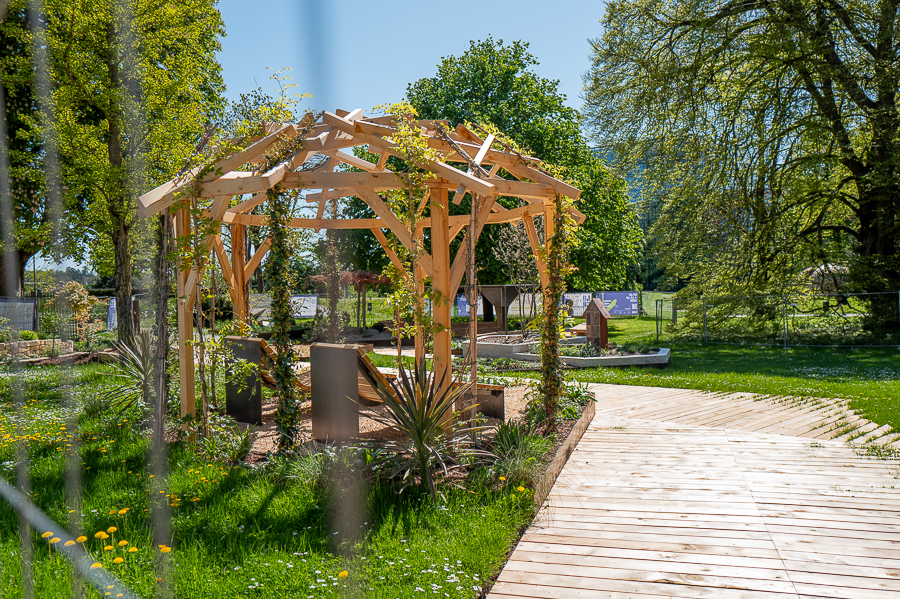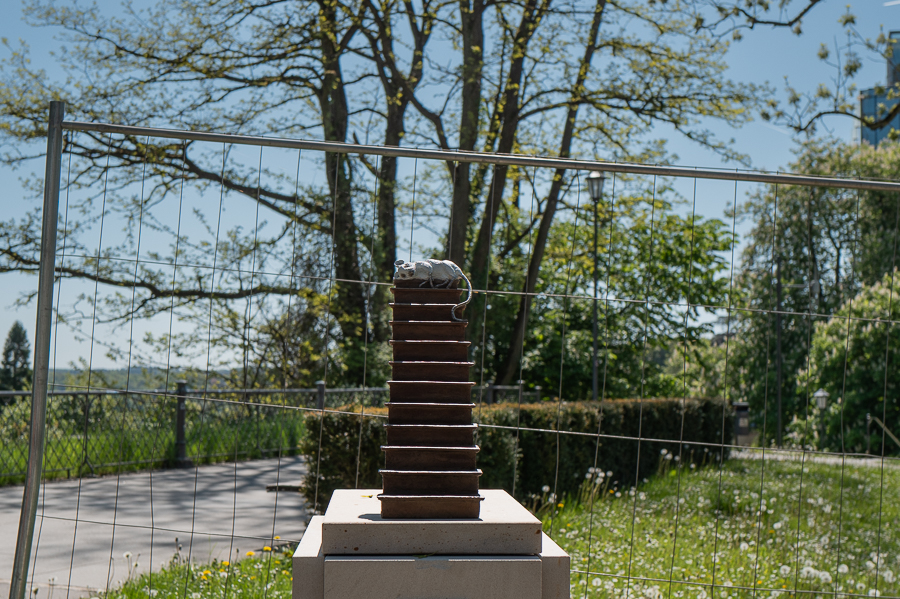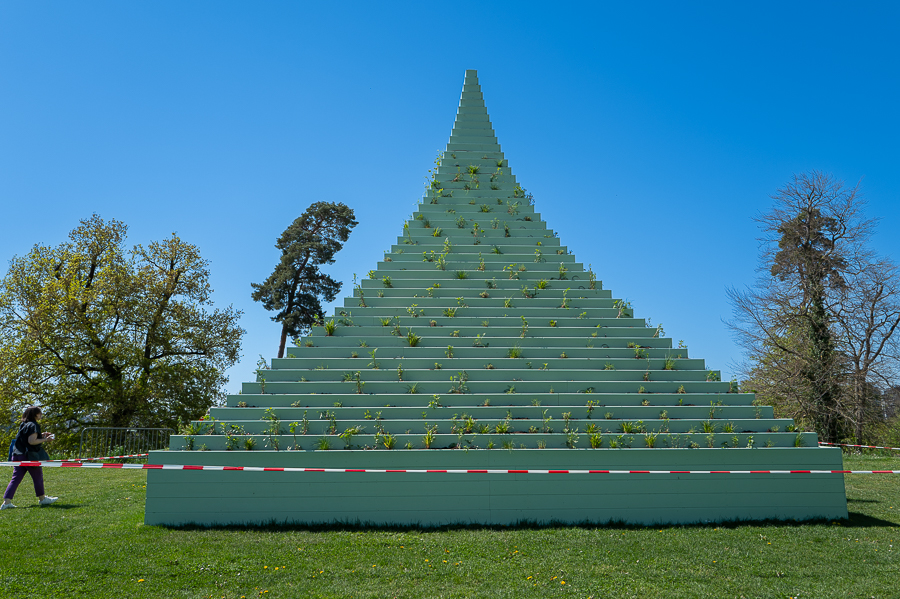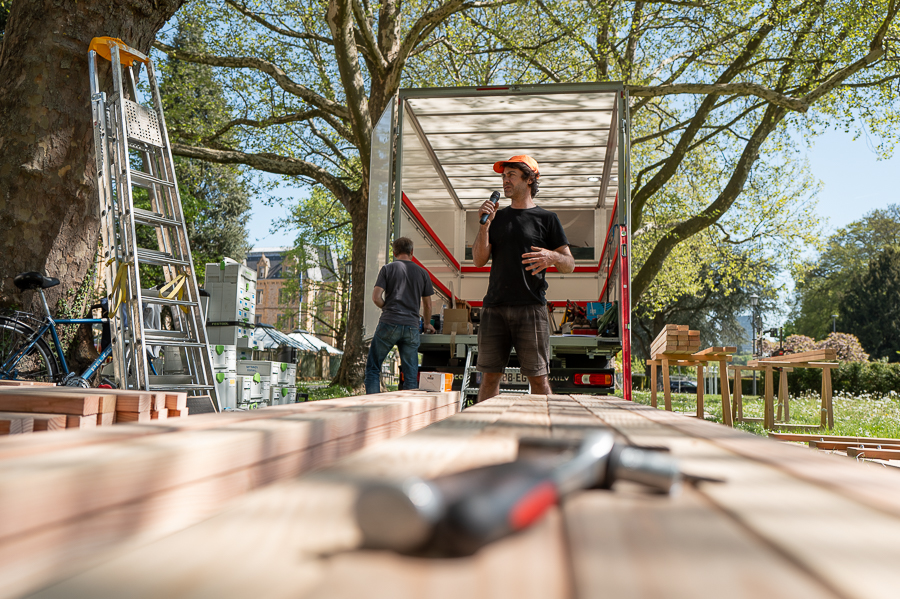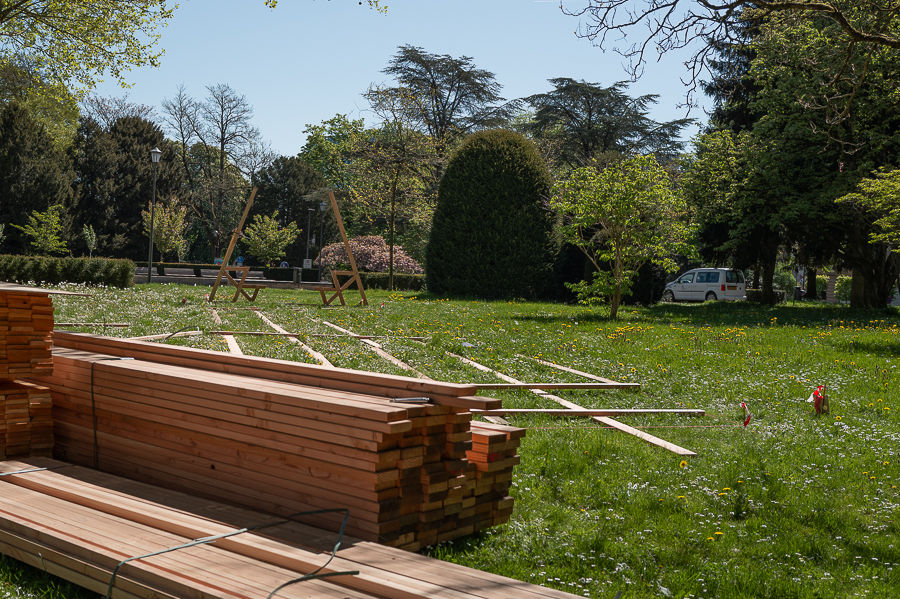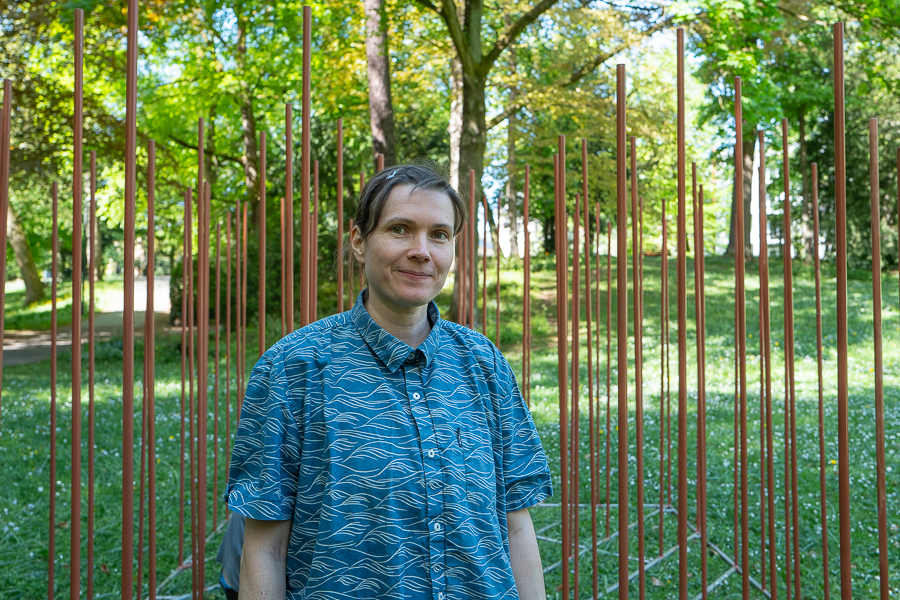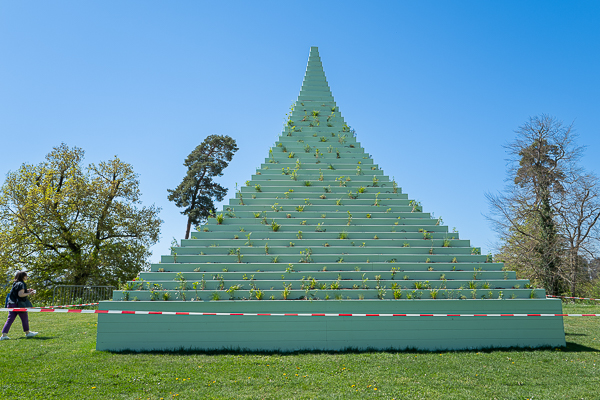 Credit: Ali Sahib, Chronicle.lu
Credit: Ali Sahib, Chronicle.lu
LUGA – Luxembourg Urban Garden held a special press preview day in Luxembourg City on Tuesday 29 April 2025.
The event began with a breakfast with Luxembourg’s Minister of Agriculture, Food and Viticulture, Martine Hansen, and Luxembourg City Mayor Lydie Polfer, followed by an exclusive press tour with LUGA General Coordinator Ann Muller of the LUGA exhibition itinerary in Luxembourg City.
The day served as an opportunity to preview the temporary outdoor exhibition, featuring urban gardens, landscape and artistic installations, agricultural projects and living spaces, based on the exhibition's theme: Making the Invisible Visible.
Speaking to Chronicle.lu about LUGA, Ann Muller recalled that it is a free, open-air garden exhibition which will take place in both Luxembourg City (trail of more than 11 km) and in Ettelbruck (trail of more than 6 km). The latter will centre around agriculture. "In fact, we are the largest, free open-air exhibition of gardens in Europe. We have 1,500 events coming up during the six months". The programme, which runs from Wednesday 7 May to Saturday 18 October 2025, features workshops, conferences, art exhibitions and other events, all related to specific themes: agriculture, horticulture, viticulture, environment, urban ecology, biodiversity, climate change, circular economy, inclusion, (slow) tourism, etc.
"It's an exhibition for everybody, so it's for a big audience, but also for people who are more specialised, interested in the themes of LUGA, but also in the how a city can change its urban places [with] such projects," explained Ann Muller, comparing the event to a six-month laboratory on important themes such as climate change, the role of green spaces in cities and "how they can change our lives", and "how we would like to live together".
She also described it as a "slow tourism" project, inviting the public to show up and take their time, share this moment "with friends, family, and have a good time together". For young people, it is also about raising awareness; the young audience programme is on Mondays, Tuesdays and Wednesdays. Other projects and events, taking place Thursday to Sunday, include sculptural gardens, art installations and agriculture projects, among others. There are also several hubs, including: "Lieux de Vie", i.e. places to live, "just to create places where people can meet"; a gastronomic pop-up at the Culture Hub in Luxembourg City’s Parc Municipal Edouard André, serving local food and beverages and featuring a small stage for concerts and lectures; a Science Hub in the Pétrusse Valley, designed to be a laboratory for research, education, experimentation and a small exhibition area; the LUGA Lab, an inclusive social and community project set in the Alzette Valley- Ann Muller said the organisers "want to create a place where people can come without being stigmatised"; the Agriculture Hub, or AgriLab, in Ettelbruck.
Many of the events are free, but some workshops charge a small fee (€5/€10). Similarly, tickets are needed for the Aquatunnel sound art installation (details here), which is normally closed to the public and has certain restrictions (i.e. number of people). There is also a specially designed route for people with reduced mobility, to make the projects accessible.
In addition to the gardens and themes, LUGA serves as "a big reflection about, for example, mobility," noted Ann Muller, adding that the organisers carried out a mobility study to avoid visitors coming by car, instead encouraging the use of public transport to access the projects. There will be signage and maps to help people find their way.
The LUGA General Coordinator also emphasised the importance of good collaboration in putting this ambitious event together. "It's all about also, let's say, a way of working together, a way of life, a way of being together, of respect," she said.
Speaking about the mix between art and agriculture, the use of space in both Luxembourg City and Ettelbruck, Ann Muller noted her own agricultural background and how she "fell in love with this project", adding: "I thought, what a fantastic thing to have such an exhibition and to have such a focus on agriculture". She said it was an "opportunity to show what agriculture can be"- the challenges but also the essential role played by agriculture. She recalled that Ettelbruck is known as Luxembourg's agricultural capital, hosting a huge agricultural fair (Foire Agricole Ettelbruck - FAE) each year. "So, it was very logical to put it there because you have the people who know what they speak of, can work on the project and, on the other hand, you also create a synergy," she explained. "You are not only in the centre, but you have people to go out and to visit our country and to create synergies between two cities".

